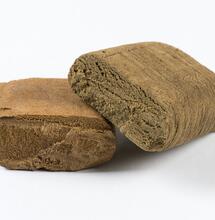Supply and Demand

In the most basic social-economic sense, those that own the means of production control Supply. Within market-economies, unless goods are damaged or past their sell-by-date, there is little room for manoeuvre at point of sale. The Seller therefore usually holds the upper hand over the Buyer at market.
In the most basic social-economic sense, those that own the means of production control Supply. Within market-economies, unless goods are damaged or past their sell-by-date, there is little room for manoeuvre at point of sale. The Seller therefore usually holds the upper hand over the Buyer at market.
In the most basic social-economic sense, those that own the means of production control Supply. Within market-economies, unless goods are damaged or past their sell-by-date, there is little room for manoeuvre at point of sale. The Seller therefore usually holds the upper hand over the Buyer at market.
When Demand outstretches supply then the economic value of a product steadily increases. In contrast when supply overwhelms demand the value of a product gradually decreases. Usually one of two methods of supplying products is then employed. Either over-stocking a product and selling it cheaply for a limited period , or limiting the supply of a product and selling it at a high price over a longer period. Much of which depends on the means and cost of production.
The driving-force behind any capitalist-economy is money. Within legal economies most money earned is banked, taxed and then exchanged for commodities and luxury items. In contrast within illegal (black market) economies money earned is spent on commodities and luxury items without the process of banking or taxation.
Within legal economies all avenues of money slowly trickle towards the government, global corporations, and wealthy landowners; those that own the means of production. Within illegal (black market) economies the flow of money slowly trickles towards local entrepreneurs, global cartels, and landowners overseas; those that own the means of production to facilitate demand , and then supply it.
Cannabis Supply and Demand
In the case of cannabis, the process of supply and demand has changed dramatically over the past few decades in Europe. Traditional the demand for cannabis was relatively low. The supply of cannabis imported from Africa, Asia, and Central America often reflected this in amounts. Small quantities of good quality cannabis from Afghanistan, Barbados, Colombia, India, Jamaica, Kenya, Lebanon, Malawi, Mexico, Morocco, Nepal, Pakistan, and other places, were regularly available at reasonable prices. The cannabis-market was then controlled by a small network of friends and associates.
Gradually as demand for cannabis increased the business of supplying cannabis multiplied. Likewise more and more cannabis needed to be cultivated and produced to supply demand. Growers in Holland then applied a combination of Dutch (and Israeli) horticultural methods in conjunction with Mexican marijuana techniques.
Initially this provided local Cannabis Suppliers with a new avenue of production besides importation. With such a close proximity to the Netherlands, this allowed Wholesale Suppliers to start importing cannabis into the UK from Holland, sometimes in vast quantities.
As the methods mastered by Dutch pioneers filtered out, many people throughout Europe wanted to supply their own demand and got involved. This resulted in a sudden uptake in the practise of Home-Growing as well as the number of people growing cannabis Commercially to supply other peoples demand.
Micky's BlackMarket
Since the most illegal aspect in cultivating cannabis is the law, many people choose to ignore the law completely as far as cannabis cultivation is concerned.
The most illegal aspect in supplying cannabis in the UK, other than breaking the law, would be the aspect of benefiting from a business transaction without submitting invoice details for the purpose of taxation.
Any Wholesale Dried Flower Supplier that has ever had a sub-machine gun stuffed in their face by SO19 Officers , soon discovers that it was actually Her Majesty's Inland Revenue & Customs that first started to investigate their case. The reason being , the Tax Man still wanted his money. Especially if it was gained by illegal earnings!
Traditionally Wholesale Suppliers would open 'fronts' (shops, bars, business) which although running at a loss helped to wash their illegal cash. Today however, regulations following 9/11 often restrict the flow of capital from one place to another without certification of transaction. To elaborate this fact, the 500euro note was recalled by the European Central Bank. They did the maths and worked out the only people that could afford to carry 500euro notes were major drug dealers and arms suppliers.
Market Forces
Today in 2012 , the Cannabis Market is often maintained by outside forces. The hype that surrounds certain cuttings generates its own price in places, while the underground cannabis media also fuels the fire of desire in others. Online-breeders which adopt a demi-god status in order to mentor sales from their Customers. Bag-dealers that aren't even touching the bags of “food” they are selling. In a relatively short period of time, Cannabis has become yet another of life's “non-renewable products”.
On the flip-side the wider-bubble that surrounds the cannabis-market today extends well beyond cannabis – especially when its called “Hemp”. Hemp is a multi-million dollar industry that legally produces , promotes, and submits taxes over hundreds of thousands of legal products.
Sadly however so long as an uptake in the 'Hemp' industry persists, then the number of conglomerates displaying an interest in the Cannabis Market will also persist. The medicinal spray Sativex is one such example. The use of Hemp fibres in the Lotus 'eco' car is another. Let us not forget that Henry Ford's first motor-car was made out of Hemp, from the door panels down to the carburettor. In fact the whole vehicle ran on hemp seed oil, covered more miles per gallon than gasoline, and was environmentally sound with little fuel emissions.
Ford's Hemp-mobile held so much potential , that the Petroleum giant Du Pont stepped in and bought up his patient. Thus meaning that no-one else could produce a Hemp-Car in future. Perhaps just another example of how Market Forces aim to regulate the supply of cannabis in the modern age.
The Future
In future the Supply and Demand for Cannabis will remain to be regulated by those market forces which hold the most interest in its cultivation. There will always be those that wish to mislead, mislabel, or misrepresent cannabis, which will restrict its supply and increase demand.
Cannabis “legalisation” in the UK would generate such a demand that without the “decriminalization” required to produce significant quantities of cannabis, supply would simply run dry. At which point Government backed corporations, with vested interests, would step in and control the cannabis whole market , hemp and all.



